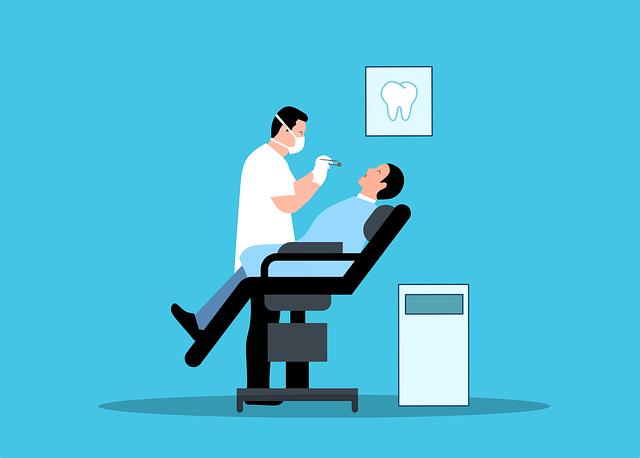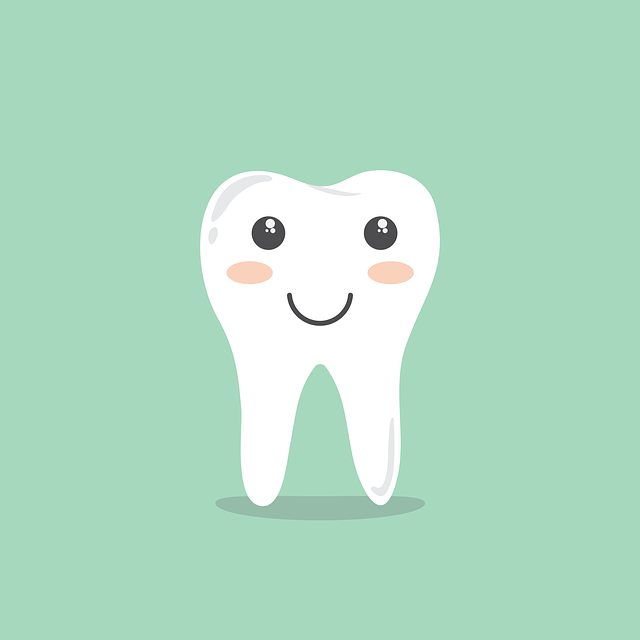Understanding the Process: Will Wisdom Teeth Fall Out Naturally?
Have you ever wondered if your wisdom teeth will eventually fall out on their own? The process of wisdom teeth eruption and extraction can be a confusing and sometimes painful experience for many people. In this article, we will explore the natural progression of wisdom teeth and provide insight into whether or not they will fall out naturally. So, sit back, relax, and let’s unravel the mysteries of wisdom teeth together.
1. The Basics: What Are Wisdom Teeth and Why Do They Cause Problems?
Wisdom teeth, also known as third molars, are the final set of molars that typically emerge in the late teens or early twenties. These teeth were necessary for our ancestors who had larger jaws and needed extra chewing power for their diet. However, with modern diets and smaller jaw sizes, many people do not have enough room in their mouths for these extra teeth to properly emerge.
When wisdom teeth do not have enough space to come through, they can become impacted, meaning they are trapped beneath the gum line. This can lead to a variety of problems, including pain, infection, and damage to surrounding teeth. Impacted wisdom teeth can also cause crowding, shifting of teeth, and even cysts or tumors in severe cases.
In some cases, wisdom teeth may come through properly without causing any issues. However, it is common for these teeth to cause problems that require removal. Regular dental check-ups and X-rays can help monitor the development of wisdom teeth and determine if they need to be extracted to prevent future complications.

2. The Normal Timeline: When Can You Expect Your Wisdom Teeth to Emerge?
Wisdom teeth typically start to emerge in the late teenage years or early twenties. However, the exact timeline can vary for each individual. Here are some general guidelines to give you an idea of when you can expect your wisdom teeth to come in:
– Most people will start to see their wisdom teeth between the ages of 17 and 21.
– In some cases, wisdom teeth may not emerge until later in life, even into the thirties or forties.
– It’s important to monitor the development of your wisdom teeth through regular dental check-ups to ensure they are coming in properly and not causing any issues.
If you are experiencing pain or discomfort in the back of your mouth, it could be a sign that your wisdom teeth are starting to emerge. In this case, it’s best to consult with your dentist to determine the best course of action.
3. Signs of Impaction: How to Tell If Your Wisdom Teeth Are Stuck
One common sign of impacted wisdom teeth is persistent pain at the back of the mouth. This pain may be dull or sharp and can radiate to the jaw or ear. If you experience ongoing discomfort in this area, it could be a sign that your wisdom teeth are stuck.
Another indication of impacted wisdom teeth is swelling and tenderness in the gums near the back of the mouth. This swelling may be accompanied by redness and difficulty opening your mouth fully. If you notice these symptoms, it’s important to consult with a dentist to determine if your wisdom teeth are impacted.
In some cases, impacted wisdom teeth can lead to infection, which can cause symptoms such as bad breath, a foul taste in the mouth, and fever. If you experience any of these signs along with pain and swelling in the back of your mouth, it’s crucial to seek professional dental care promptly to prevent further complications.

4. The Role of Genetics: Will Your Family History Determine If Your Wisdom Teeth Fall Out Naturally?
Genetics play a significant role in determining whether your wisdom teeth will fall out naturally. Your family history can provide valuable insights into how your wisdom teeth may develop over time. Here are some key points to consider:
– **Genetic factors**: Certain genetic traits can influence whether your wisdom teeth will erupt properly or become impacted. This can vary from person to person, depending on their family history.
- **Inheritance patterns**: The likelihood of your wisdom teeth falling out naturally can be inherited from your parents or other family members. If many of your relatives had their wisdom teeth extracted, you may have a higher chance of experiencing similar issues.
– **Consult with a professional**: If you have concerns about your wisdom teeth and their natural eruption, it’s essential to consult with a dental professional. They can assess your family history, examine your teeth, and provide personalized recommendations based on your unique situation.
Understanding the role of genetics in determining the fate of your wisdom teeth can help you make informed decisions about your dental health. By staying informed and seeking professional advice, you can better navigate any potential challenges that may arise.
5. The Importance of Regular Dental Checkups in Monitoring Wisdom Teeth Development
Regular dental checkups are crucial for monitoring the development of wisdom teeth. These checkups allow your dentist to track the growth and alignment of your wisdom teeth and identify any potential issues early on. By staying on top of your dental appointments, you can prevent complications such as impaction, overcrowding, and infection.
During a dental checkup, your dentist will conduct a thorough examination of your wisdom teeth using X-rays and visual inspection. This allows them to assess the position of your wisdom teeth and determine if they are coming in properly. If any problems are detected, your dentist can recommend the appropriate course of action, whether it be extraction, monitoring, or other treatment options.
Regular dental checkups also provide an opportunity for your dentist to address any concerns or questions you may have about your wisdom teeth. By staying informed and proactive about your oral health, you can ensure that your wisdom teeth develop properly and maintain a healthy smile for years to come.
6. Natural Remedies for Wisdom Tooth Pain: How to Alleviate Discomfort While Waiting for Them to Emerge
Wisdom tooth pain can be incredibly uncomfortable, but there are natural remedies that can help alleviate the discomfort while waiting for them to emerge. Here are some effective ways to ease the pain:
- Clove oil: Clove oil has natural numbing properties that can help relieve wisdom tooth pain. Simply apply a few drops to a cotton ball and gently place it on the affected area.
- Peppermint tea: Peppermint tea has anti-inflammatory properties that can help reduce swelling and pain in the gums. Drink a cup of peppermint tea or apply a cooled tea bag directly to the affected area for relief.
- Saltwater rinse: Mixing warm water with salt can help reduce inflammation and kill bacteria in the mouth. Rinse your mouth with this solution several times a day to help alleviate wisdom tooth pain.
By incorporating these natural remedies into your routine, you can help alleviate wisdom tooth pain and make the waiting period more bearable.
7. Surgical Extraction vs. Natural Eruption: When Is Intervention Necessary?
When considering whether surgical extraction or natural eruption is necessary, it is important to evaluate the specific circumstances of the individual case. Here are some factors to consider:
- Age of the individual: Younger patients may benefit from natural eruption as their teeth continue to grow and develop.
- Position of the tooth: If the tooth is impacted or causing crowding, surgical extraction may be necessary to prevent further complications.
- Overall oral health: In cases where the impacted tooth is causing pain or infection, intervention may be necessary to maintain the health of the surrounding teeth and gums.
Ultimately, the decision to intervene with surgical extraction or allow for natural eruption should be made in consultation with a dental professional. They can provide expert guidance based on the specific needs of the individual and ensure the best outcome for their oral health.
8. Complications of Leaving Impacted Wisdom Teeth Untreated
Leaving impacted wisdom teeth untreated can lead to a range of complications that can negatively impact your oral health. One common issue is the development of gum disease, as the impacted teeth create pockets where bacteria can accumulate and cause infection. This can result in symptoms such as redness, swelling, and tenderness in the gums.
Additionally, impacted wisdom teeth can cause crowding and misalignment of the other teeth in your mouth. This can lead to difficulties with chewing and speaking, as well as an increased risk of tooth decay and cavities. In severe cases, impacted wisdom teeth can even cause damage to nearby teeth or nerves, leading to more extensive dental procedures in the future.
If you are experiencing symptoms of impacted wisdom teeth, it is important to seek professional dental care to prevent these complications from worsening. Your dentist can evaluate your situation and recommend the appropriate treatment, whether it be extraction or other interventions to address the issue. Don’t ignore the signs of impacted wisdom teeth – taking action early can help you avoid serious consequences down the road.
9. Maintaining Oral Hygiene During the Wisdom Teeth Eruption Process
During the wisdom teeth eruption process, it is crucial to maintain good oral hygiene to prevent any complications or infections. Here are some tips to help you keep your mouth healthy during this time:
- Brush your teeth at least twice a day with a soft-bristled toothbrush and fluoride toothpaste.
- Use an antiseptic mouthwash to help reduce bacteria in your mouth.
- Floss daily to remove food particles and plaque from between your teeth.
Remember to be gentle when brushing and flossing around the erupting wisdom teeth to avoid causing irritation or injury. By following these simple steps, you can help ensure that your mouth stays clean and healthy as your wisdom teeth come in.
10. Final Thoughts: Trusting the Process and Seeking Professional Advice when Needed
Trusting the process is key when it comes to seeking professional advice. It can be easy to feel overwhelmed or uncertain about next steps, but remember that professionals are there to guide you through the process. By trusting in their expertise and following their recommendations, you can feel confident in the decisions you make.
When seeking professional advice, it’s important to be open and honest about your concerns and goals. This will help professionals tailor their advice to best suit your needs. Don’t be afraid to ask questions or seek clarification on anything you don’t understand. Professionals are there to help you navigate any challenges you may face and provide you with the support you need.
Remember that seeking professional advice is a proactive step towards achieving your goals. Whether you’re looking for financial advice, legal guidance, or career counseling, professionals are equipped to provide you with the knowledge and resources you need to make informed decisions. Trust in the process and don’t hesitate to reach out for help when needed.
Frequently Asked Questions
Q: What are wisdom teeth and why do they sometimes need to be removed?
A: Wisdom teeth are the final set of molars that typically erupt in the late teens or early twenties. They may need to be removed due to issues such as impaction, crowding, or infection.
Q: Will wisdom teeth fall out naturally on their own?
A: In some cases, wisdom teeth may fall out naturally, but more often than not, they need to be extracted by a dentist or oral surgeon.
Q: What are the signs that indicate a need for wisdom teeth removal?
A: Signs that may indicate a need for wisdom teeth removal include pain, swelling, infection, difficulty chewing, and crowding of other teeth.
Q: How is the process of wisdom teeth removal typically carried out?
A: Wisdom teeth removal is typically carried out under local or general anesthesia, depending on the complexity of the procedure. The dentist or oral surgeon will then extract the teeth using special instruments.
Q: Are there any risks or complications associated with wisdom teeth removal?
A: While wisdom teeth removal is a common and safe procedure, there are risks of complications such as infection, nerve damage, and dry socket. It is important to follow post-operative care instructions carefully to minimize these risks.
Q: What should I expect during the recovery period after wisdom teeth removal?
A: During the recovery period, you may experience swelling, pain, and bleeding. It is important to follow your dentist’s instructions for pain management, eating soft foods, and keeping the extraction sites clean to promote healing.
Q: How can I prevent problems with my wisdom teeth?
A: Regular dental check-ups and X-rays can help identify potential issues with wisdom teeth before they become problematic. Maintaining good oral hygiene and seeking prompt treatment for any symptoms of wisdom teeth problems can also help prevent complications.
Wrapping Up
In conclusion, understanding the process of wisdom teeth falling out naturally is essential for maintaining good oral health. While some individuals may experience discomfort or complications, it is important to consult with a dentist for proper guidance. Remember to practice good oral hygiene and monitor the development of your wisdom teeth to ensure a smooth transition. Trust in the expertise of dental professionals to navigate this natural process with confidence. Stay informed, stay proactive, and prioritize your dental well-being.






